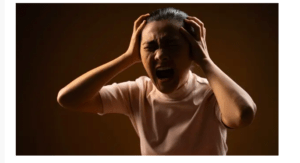
Why You Might Ignore Red Flags
Are you ignoring warning signs but still continuing to date someone despite major red flags? If so, there could be
Children raised in poverty, abuse, neglect, or invalidation may be conditioned to view special occasions like their birthdays or holidays as just another day. These children may believe they are a burden on others and nobody will show up for them or plan a party for them. They may also have to share their birthday party with other family members or a family reunion, making them feel like their special day is not theirs.
Growing up in this manner can profoundly impact a child’s self-esteem and ability to feel valued and loved. Children who grow up this way may feel like they are not worthy of attention or celebration, which can lead to feelings of shame and inadequacy. They may also develop a sense of learned helplessness, believing they have no control over their lives or circumstances.
Abuse and neglect can also significantly impact a child’s emotional well-being. Children who have experienced abuse or neglect may struggle with anger, fear, and anxiety and have difficulty trusting others. These children may also struggle with self-esteem issues and may have difficulty seeing themselves as worthy of love and attention.
Invalidation is another factor that can contribute to a child’s sense of self-worth. When a child’s feelings and experiences are invalidated, they may feel like their emotions don’t matter or are unimportant.
Being taught their special occasions are not truly special. They may believe nobody cares about them or they do not deserve a celebration. This can lead to a sense of isolation and a feeling of being disconnected from others.
Parents and caregivers need to recognize the impact of poverty, abuse, neglect, and invalidation on a child’s emotional well-being. They should work to provide a safe and supportive environment where children feel valued and loved. This may involve providing opportunities for children to celebrate special occasions and creating traditions that make them feel special.
Parents and caregivers can also work to build a child’s self-esteem by providing positive feedback and praise. They should encourage children to express their emotions and validate their feelings, which can help them feel heard and understood, boosting their sense of self-worth and emotional well-being.
Additionally, parents and caregivers must seek help if they struggle to provide their children with a safe and supportive environment. Many resources, including counseling and therapy, can help families overcome the challenges associated with poverty, abuse, neglect, and invalidation.
As we discussed earlier, childhood experiences of neglect, abuse, and invalidation can impact a person’s life. One such effect can be seen in how adults view their birthdays or holidays. When children are conditioned to believe that their special days are “just another day,” they can struggle to embrace them in adulthood. This can lead to emotional triggers and flashbacks of deeper pain.
For many adults who have experienced childhood trauma, birthdays and holidays can be a time of great emotional distress. These days can be a stark reminder of the love and attention they did not receive as children. They may become depressed around these days or experience other negative emotions, such as anxiety, anger, or sadness. The pain they experienced as children is brought back to the surface, and they may feel they are reliving the trauma all over again.
One of the most challenging aspects is that many people who have experienced this childhood trauma may not even know why they struggle with their birthdays or holidays. They may feel guilty for feeling sad or upset about what should be a happy occasion. They may even dismiss their feelings as being “spoiled” or “entitled” and not give themselves permission to acknowledge and process their pain.
Another way that this trauma can manifest is in how adults respond to the idea of celebrating their special days. Some may become argumentative or dismissive of the idea of a celebration altogether. This can be seen as narcissistic or selfish behavior, but it is often a defense mechanism used to protect themselves from feeling the pain of their childhood experiences. They may feel they do not deserve to be celebrated or loved, so they push away anyone who tries to do so.
Avoiding birthdays or holidays can also be a way to regain control. As a child, they may not have had control over their own lives or experiences, but as adults, they can control how they choose to celebrate or not celebrate these special days. For some, this can be a way to assert their independence and autonomy.
However, it is essential to note that avoiding these celebrations can also harm a person’s mental health. Celebrations can be a way to connect with others, build new memories, and create positive experiences. By avoiding them, a person may be missing out on opportunities to heal and grow.
For those who struggle with embracing their birthdays or holidays, it is important to seek support and understanding. Talking to a therapist, trusted friend, or family member can be a helpful first step, and they can help validate your feelings and provide a safe space to process them.
It is also important to be kind and compassionate to yourself. Acknowledge that your pain is valid and that feeling sad or upset around these special days is okay. Practice self-care and engage in activities that bring you joy and comfort.
In conclusion, childhood experiences of neglect, abuse, or invalidation can have lasting effects on a person’s life. For some, this can manifest in difficulty embracing their birthdays or holidays in adulthood. These days can remind them of the pain and trauma they experienced as children. It is important to seek support, be kind, and recognize that your pain is valid. Celebrations can be a way to heal and grow, and it is never too late to start creating new positive memories.
The articles on Fitnesshacksforlife.org website is provided for reference purposes only, A public resource you can use for free. You should not take them as the sole source of medical direction. Fitnesshacksforlife.org does not accept payments or incentives from any of the individuals or organizations named in the articles, and the articles are not an endorsement of those parties or their products or practices. Do not ever disregard professional psychological or medical advice nor delay in any manner seeking professional advice or treatment because of something you have read on our site or social media. Fitness Hacks For Life is a registered 501(c)(3) non-profit organization, eligible to receive donations under the laws of the United States of America.

Are you ignoring warning signs but still continuing to date someone despite major red flags? If so, there could be

One of the most tell-tale signs to be aware of is when someone exhibits love and sex bombing. This is

3 skills that can help people learn to better control their anger. KEY POINTS Anger is a strong negative emotion
Fitness Hacks For Life is a registered 501(c)(3) .
A non-profit organization, eligible to receive donations under the laws of the United States of America.
Copyright © 2024 Fitnesshacksforlife.org | All rights Reserved | Disclaimer | Terms & Conditions | Privacy Policy & Cookies
400 NW Gilman Blvd.#787
Issaquah, WA 98027
360-504-8366

Agreed Declined